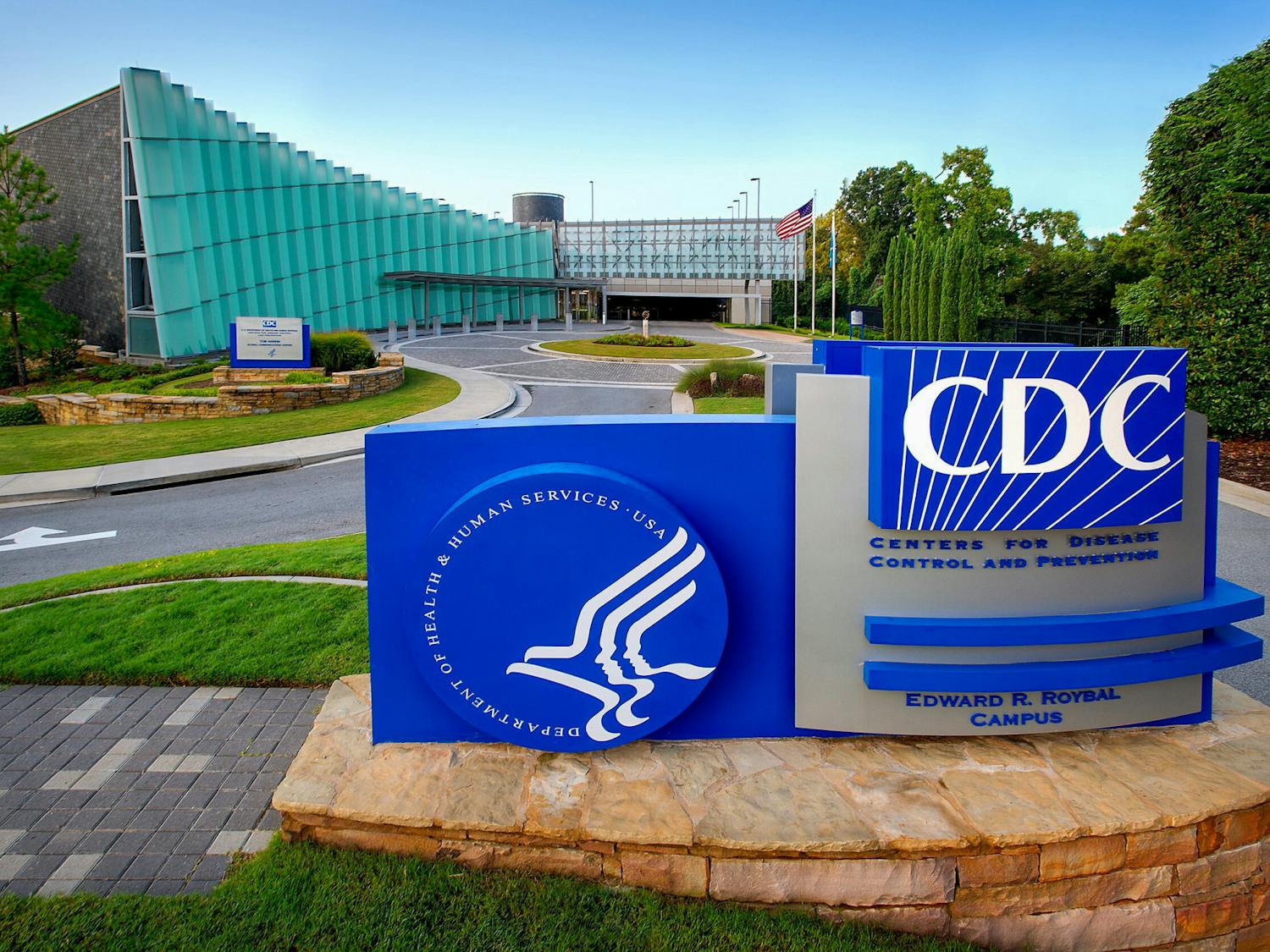Penn students rarely bat an eye when they see clusters of their suit-clad peers rushing off to Huntsman Hall, clutching leather-bound folders.
On this campus, companies like McKinsey & Company and Goldman Sachs Group Inc. are household names. Career Services emails, campus flyers and advertisements in The Daily Pennsylvanian are populated by prestigious banks and consulting firms.
It is commonly understood that Penn students, more than their peers at similar institutions, flock to careers in finance and consulting after graduation. Nearly half of 2016 Penn graduates who took full-time jobs worked in those two industries, with 25 percent in finance and 17 percent in consulting. Meanwhile, only a quarter of 2016 Harvard University graduates entered these two industries — 14 percent accepted full-time offers in “financial services,” while another 11 percent went into consulting. Yale University, Princeton University and Cornell University each had a little over a quarter of their 2016 graduates accept full-time offers in the two sectors.
While large paychecks — which can often climb into six digits and beyond — are enticing aspects of finance and consulting, they are not all that draw Penn students to join these industries. Often, there is something else at play: prestige.
“You have seen the pyramid narrow as you moved along. You went to high school, you did well in high school, you got into a very competitive, selective university, you’ve done well here,” Patricia Rose, director of Career Services said. “Do you want to become a tool and die maker in Illinois? That might be a terrific opportunity, but you probably want to go to an employer that has made it known that they are prestigious and selective.”
Top-ranked investment banks and consulting firms are known for accepting large classes of recent college graduates from each year.
In 2016, Goldman Sachs hired 29 new employees from Penn, Boston Consulting Group hired 28, JPMorgan Chase hired 26 and Deloitte hired 23. All of these companies ranked among the top 10 employers for Penn students last year.
Over time, technology companies have also joined the ranks of firms known for hiring large numbers of Penn students — Google hired 28 of the 2016 graduates last year. While tech has ballooned in prominence, Rose said investment banking has also grown more popular over the last few decades, and consulting is always a popular option as well.
The camaraderie fostered by large numbers of young, elite people working side by side is something that Penn students actively seek in their first jobs, Rose explained.
“Students at Penn like to be with folks like themselves, and by that, I mean other students who are part of a curated group,” she said. “They’re really smart, [and] they’ve been selected.”
It’s not just Penn students seeking the companies — the companies seek Penn students by coming to campus and establishing their presence in the recruiting process. Having companies on campus appeals to Penn students, Rose said, because they don’t have to reach out to employers themselves and they can often secure offers early in the year.
“Students are very busy,” Rose said. “And if you have people available on campus and you’re getting emails saying, ‘Come meet with us,’ you’ll check it out.”
Wharton senior Mario Del Cueto, who serves as an advisor to younger Wharton students, acknowledged the prominence of investment banking and consulting in the Wharton community, in particular.
“Part of the reason why these are so well-known is because those are the things that get repeated again in club meetings and even in the classroom,” he said.
Careers in finance, he said, are easy for Wharton students to imagine because their finance courses often involve working on the same kinds of models, for example, that they would work on in a potential summer internship.
“That correlation is easier to draw,” he said.
Alexandra Michel, a Graduate School of Education professor who received a doctorate from the Wharton School and used to work at Goldman Sachs, sees the decision to enter a prestigious, high-paying job after college as the obvious next step after what is often an elite upbringing.
“There is a whole life experience that predisposes children to be more successful, and get into these more successful schools, and get drawn into careers that feel like their childhood and feel like the elite trajectory that they have been on throughout their childhood,” Michel said.
Many students sign job offers at investment banks or consulting firms with the implicit understanding that they will only work there for two or three years before moving on to another job or a graduate degree. Rose said the short-term commitment appeals to Penn students, many of whom may plan on switching jobs or going back to school in their twenties.
“If you had a company who came to this campus as they do to, say, big Midwestern state universities, and they say, ‘You can come to work for us at Caterpillar Tractor and you can make a career here.’ Well, who wants to think about 30, 40 years at one place?” Rose said. “Not our students.”
But these prestigious jobs come at a price. Many companies require their analysts to work over 100 hours a week and be constantly available, a lifestyle Michel sees as a major health risk.
“There’s this disconnect between these elite individuals who have everything that society can offer, and who are pampered by their firms, but who, nevertheless, are working under really difficult conditions,” Michel said. “And society has zero empathy for that.”
Michel cited a list of issues that can arise from overworking, ranging from cardiovascular disease to depression to relationship problems. Recently, the dangers of these jobs have been illuminated by a string of tragedies.
In 2015, Sarvshreshth Gupta, a first-year analyst at Goldman Sachs who was also a 2014 Penn graduate, died by suicide. Two years before that, a 21-year-old investment banking intern at Bank of America Merrill Lynch died after having an epileptic seizure in the shower following 72 straight hours of work without sleep.
Though investment banking and consulting dominate Penn students’ perceptions of commonly chosen careers, Wharton advisors said they actively try to make sure the students they advise are aware of other options. Wharton senior and advisor Anushree Gupta, said her organization, Wharton Women, tries to make sure members are aware of options to work for other industries.
“We really tried to broaden the spectrum of industries people were exposed to and make sure they didn’t just hear about banking and consulting,” she said. “We tried to make sure that no one felt pressured, and didn’t feel like the only thing that was talked about were those two industries.”









